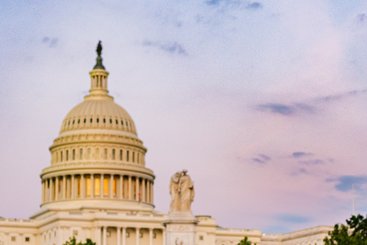While governments across the world should be doing what they can to defend democracy, Communities Secretary Michael Gove’s move in the UK to redefine ‘extremism’ – as set out in the Defending democracy policing protocol – is a clear step in the wrong direction.
Certain groups will be blocked from government funding and meeting officials under the new definition, which risks reducing the space for dissenting views and the right to protest, and only government approved voices influencing decision-making.
At a time when the world is already facing a backlash to rights and shrinking civic space, experts from ODI outline why this political manoeuvre is dangerous and represents anything but ‘defending democracy’.
Our researchers reflect on the precedent the new definition sets for democracy today, and how it will impact women and minority groups the hardest.
Samuel Sharp: restricting civic space sets a worrying precedent for democracy
The struggles of global democracy in the last decade have been well documented. Most of this democratic erosion has not come in terms of electoral competition – a decline in incumbents removed from office through elections - but instead in more subtle challenges to the civil liberties and rights protections that enable democracy to function.
Restrictions on civic space and freedom of expression are a common tool. CIVICUS has documented that civil society face at least one of three repressive tactics (physical harassment and murder; negative discourses and labelling; and restrictive legislation) in 117 of 197 countries.
Through this lens, the UK Government’s imprecise attempt to redefine ‘extremism’, and how this definition could be used to stifle activism, is concerning. Particularly vague is a clause which classifies as extremist not just those that directly undermine fundamental rights or UK democracy, but also those that ‘intentionally create a permissive environment’ for doing so.
Liberal democracies face a genuine balancing act in regulating hate speech, protection from intimidation and freedom of expression. But, if in tension, protecting fundamental democratic rights to free speech and protest should be the priority. Opposition to the change has come from groups as diverse as the pro-hunting Countryside Alliance, National Secular Society, and the Palestine Solidarity Campaign, all concerned that their views could be classed as extremist. For many, the policing of protests on Gaza are a testing point of UK’s willingness to uphold such democratic values.
That Prime Minister Sunak sees the reform as an attempt to stop ‘mob rule replacing democratic rule’ is ironic. Limitations on civic space, even through seemingly marginal changes to definitions, can set a worrying precedent for democracy.
Ján Michalko and Emilie Tant: new definition could deepen distrust, especially among women and minority groups
Defending democracy does indeed require leadership from our politicians in power, especially as democracy is intended to support and defend individual freedoms and our collective well-being. But redefining extremism will not lead to much needed improvements in the public lives of women in the UK.
Women in society and in politics experience the consequences of intensifying intimidation, public misogyny, and anti-feminist discourse, but this is largely fuelled by patriarchal gender norms and broader socio-economic factors in society – rather than the types of political protest this definition seeks to target.
An ongoing curtailing of civil rights in the UK and recent treatment of women taking part in public protests, such as for Sarah Everard or Gaza, has already fostered distrust with the authorities, especially for women who remain socially and racially marginalised. A redefinition and expansion of the definition of extremism has the potential to further deepen this distrust with public institutions, as this protocol leaves it open to interpretation (by the reigning government) which and whose democratic rights are protected over others.
Without a clear definition of which rights should be protected under the scope of British democracy, women from religious, racial and ethnic minority backgrounds will increasingly feel less safe to take part in either formal or informal democratic processes. If we truly wanted to protect MPs, and British democratic processes, the government would instead address the norms and systemic issues that drive threats and intimidation against women in politics and in society at large.
Challenging the sexist, racist and anti-LGBTQI+ extremism that goes unregulated on social media and refusing to engage with culture wars to achieve political ends is a first step. In a time of anti-gender backlash and intense social polarisation, Gove’s definition does nothing to address the powerful actors actually targeting the rights and freedoms of women and gender minorities in society and in politics.





